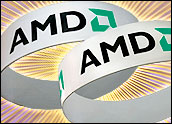
Several dynamic random access memory chip makers continue to be penalized for alleged price fixing efforts that did nothing to stem the falling price of their products from the late 1990s to 2002.
The chip makers, which include Samsung, Micron, Infineon, Elpida, Hynix, Mosel-Vitelic, Nanya Technology and NEC, are being sued by New York and more than 30 other U.S. states over an alleged conspiracy from 1998 to 2002. New York Attorney General Eliot Spitzer refers to the accused price-fixing collaborators as one of the largest cartels ever discovered.
Fines Mounting
The companies have been mired in an antitrust investigation by the U.S. Justice Department that has already resulted in more than US$730 million in settlements from four companies — Samsung, Infineon, Elpida and Hynix — and even prison time for several company executives.
Now, New York and the other states, which are home to agencies and businesses that purchased IT gear containing the alleged price-fixed DRAM chips, are suing for damages.
“The defendants in this case conspired to rig the U.S. market for this essential computer product, working together to keep prices artificially high,” said California Attorney General Bill Lockyer. “In the process, they victimized individual consumers, governmental agencies, schools and taxpayers. This lawsuit seeks compensation for those victims and to ensure the defendants never again violate fundamental tenets that make our economy work properly.”
Penalties to Pay
The DRAM makers face two separate, similar antitrust suits — one filed Thursday by the state of New York, and the other filed in San Francisco federal court Friday by 34 other states. Both suits seek unspecified damages.
The suits grew out of the U.S. antitrust case brought against the chip makers following a federal investigation in 2002. Among the recent settlements in the case was South Korean giant Samsung’s agreement to pay $300 million for its alleged wrongdoing — the largest payment out of the total $730 million in fines paid so far by Samsung, Hynix, Infineon and Elpida. Micron agreed to cooperate with investigators in the federal case for amnesty.
In their suit against the companies, the state attorneys general indicate the chip makers and their corporate officers regularly worked on the scheme to control DRAM supply, demand and price.
“The manufacturers did not limit this pricing coordination to isolated or occasional conversations,” said the complaint, which connects more intense communications to the companies’ negotiations with U.S. PC makers, including Apple, Dell, Hewlett-Packard and IBM.
No Effect
Despite their alleged efforts to collectively trim production and price loss for DRAM, the price of the memory chips continued to dwindle all the way to 2002, Semico Research analyst Jim Handy told the E-Commerce Times.
“It’s ironic that while they were trying this, prices fell below cost,” he said.
The chip makers accused of conspiring to fix the prices of DRAM chips may have to pay a hefty price. California alone is seeking three times the amount of damages for which the court finds them liable, and damages could total in the tens of millions of dollars, according to Lockyer.
Chips on the Table
The impact of the alleged DRAM price fixing efforts on actual DRAM prices was probably relatively small, but the impact of the U.S. investigation and subsequent fines and lawsuits will likely prevent similar behavior in the future, at least in the U.S., Mercury Research President Dean McCarron told the E-Commerce Times.
He stressed the DRAM market, worth $5 billion in the U.S. in 2003, has always been volatile and market-driven, so supply and demand can cause prices to “rocket” in one direction or another.
McCarron downplayed the overall impact of the price fixing scheme and resulting government crackdown.
“Obviously, it’s attracted the attention of the states,” McCarron said. “Not to be too cynical, but I think a lot of this simply comes down to [the fact that] there’s money to be had.”













































Social Media
See all Social Media